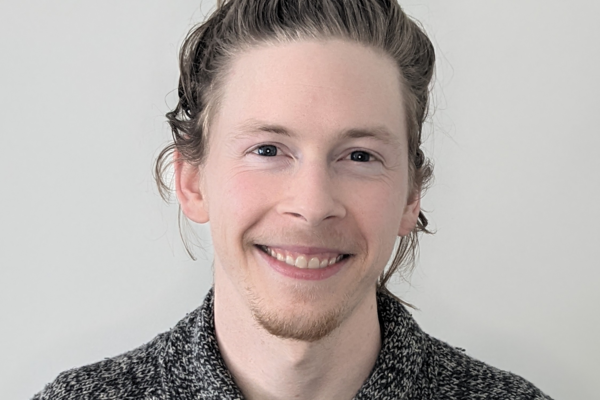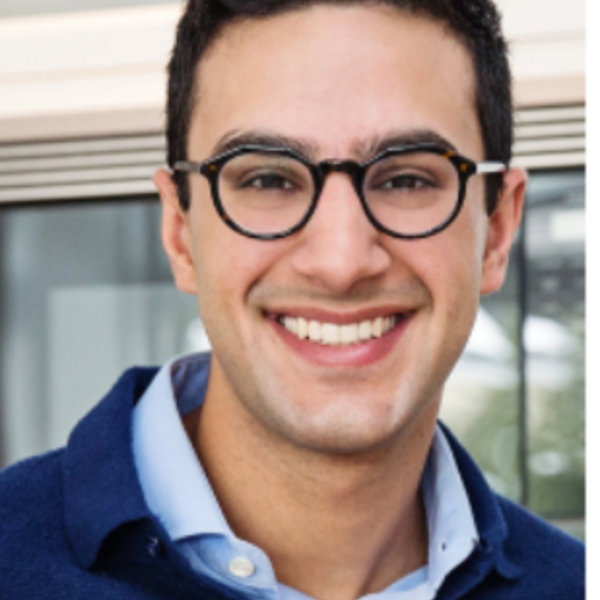CIP Trainees
The Clinician Investigator Program provides an exciting opportunity for residents to pursue graduate or postdoctoral level training within a RCPSC accredited program. The program provides an innovative curriculum, mentorship and the opportunity to pursue a diverse array of cutting-edge research. The CIP aims to provide you with the skills needed to develop a successful career as a physician scientist/investigator.

Connor Brenna
Connor Brenna completed a bachelor’s degree in Anatomy and Cell Biology and Biochemistry at the University of Saskatchewan (2017), followed by a medical degree at the University of Toronto (2021).
His past research has included pursuits in philosophy, psychiatry, and neurosurgery, with generous support from the University of Saskatchewan, University of Toronto, the Natural Sciences and Engineering Research Council of Canada, and the Canadian Institutes of Health Research. As a resident physician in the Clinician Investigator Program, as well as a Research Fellow in Sunnybrook’s Perioperative Brain Health Centre, his primary focus is on the neurodepressive mechanisms of anesthetics and their implication in perioperative cognitive dysfunction and mood disorders. Through this work, he hopes to leverage the unique tools of clinical anesthesia to inform fundamental questions about the nature of cognition and consciousness.

Calvin Diep
Calvin completed his Bachelor of Medical Sciences in physiology at Western University and his Doctor of Medicine at the University of Toronto.
His research to date includes using epidemiologic models to describe population trends of cannabis and prescription opioid use and their relationships with outcomes such as pain, sleep, and depression. Through the Clinician Investigator Program, Calvin is pursuing graduate studies in Clinical Epidemiology at the Institute of Health Policy, Management and Evaluation. His current research focuses on studying patient-centered outcomes in the perioperative period. His thesis aims to characterize the dynamic changes in depressive symptoms experienced by older adults undergoing and recovering from major surgery across Canada and their impact on other important outcomes.
Preparing for, undergoing, and recovering from surgery can be physically challenging and psychologically distressing. Calvin hopes his work will inform the development of care models and interventions that better align patients with the supports needed to achieve a holistic recovery after surgery.

Naheed Jivraj
Dr. Jivraj began studying medicine at the University of St. Andrews and graduated, with two distinctions, from King’s College in London. It was at King’s College that he developed and quantified outcome measures, assessing pain, and function for patients with Amyotrophic Lateral Sclerosis. During his Masters degree in International Health Policy from the London School of Economics, he focused on healthcare delivery, cost-effectiveness analysis and the measurement of health outcomes. Concurrently, while working in the industry, he collaborated with health leaders in Singapore, Australia, and Britain to identify opportunities to improve health outcomes and spending in colorectal cancer care. His work has led to 10-peer review publications in the Anesthesia and Basic Research in Cardiology Journal. To further his education, he is currently pursuing a Masters degree in Clinical Epidemiology at the Institute of Health Policy, Management and Evaluation; where his current research aims to quantify the burden of chronic opioid use in the peri-operative setting, assess the impact of surgery on opioid consumption and completing ongoing work on the quantification of the difficult airway.

John Peel
A graduate from McMaster University with a Bachelor of Health Sciences: Biomedical Science Specialization, and later obtained his medical degree from University of British Columbia. Dr. Peel is currently pursuing a PhD in Clinical Epidemiology and Health Care Research through the Institute of Health Policy, Management, and Evaluation at the University of Toronto. His focus is on perioperative risk evaluation and optimization of patients undergoing lung transplant. At present, international guidelines for lung transplant describe some indication-specific considerations to ensure appropriate selection of patients for transplant. Despite such findings, the data is lacking to direct the preoperative optimization of these patients for whom lung transplant is indicated. Dr. Peel's proposed project is to develop a tool that assists in prediction of postoperative pulmonary complications among patients undergoing lung transplant so that these complications may be better prevented. He was previously awarded funding from McMaster University, UBC, and NSERC for his research.

Lavarnan Sivanathan
Lavarnan completed his undergraduate education, medical degree and post graduate training at the University of Toronto. During his medical training, he was in involved in multiple research projects understanding the pharmacology behind novel chemotherapeutics for metastatic prostate cancer. He is currently completing a masters degree in Clinical Epidemiology and Health Care Research (IHPME). His primary research focuses on mental illness outcomes after surviving intensive care unit admission, and the cost-effectiveness of decisions made in the perioperative and intraoperative setting. Through his research, Dr. Sivanathan will be able to set the foundation for future interventional studies that will be able to highlight the targeted patient subgroup, now that many interventional studies show no difference between intervention and controls. He has been first author and co-author of highly respected journals including European Journal of Cancer, The Prostate and Biomarkers in Medicine; and co-authored two text book chapters concerning novel forms of chemotherapy and pharmacology.
